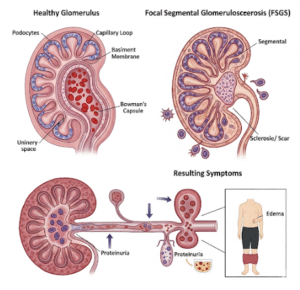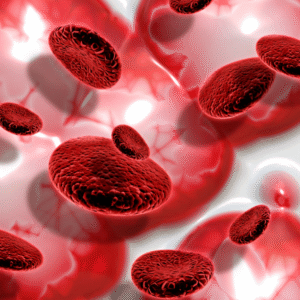Overview
Personality disorders are enduring patterns of behavior, cognition, and inner experience that deviate significantly from cultural expectations and cause significant distress or impairment. Cluster A Personality Disorders are characterized by odd, eccentric, or socially detached behaviors. People with these disorders often appear unusual or strange and typically have difficulty forming close relationships. These disorders are usually diagnosed in adulthood but may have roots in early development.
What is Personality Disorders Cluster A?
Cluster A is one of the three groups used to classify personality disorders in the Diagnostic and Statistical Manual of Mental Disorders (DSM-5). It includes three specific disorders:
- Paranoid Personality Disorder (PPD): Involves pervasive distrust and suspicion of others.
- Schizoid Personality Disorder (SPD): Characterized by social detachment and limited emotional expression.
- Schizotypal Personality Disorder (STPD): Involves discomfort in close relationships, distorted thinking, and odd behaviors or beliefs.
These disorders differ from psychotic disorders like schizophrenia in that people with Cluster A disorders are typically in touch with reality but may have distorted perceptions of others or themselves.
Symptoms
Each disorder in Cluster A has distinct symptoms, but they share common features of social and emotional detachment:
Paranoid Personality Disorder:
- Chronic distrust and suspicion
- Belief that others are exploiting or harming them
- Reluctance to confide in others
- Holding grudges and being unforgiving
- Perceiving innocent comments as threats
Schizoid Personality Disorder:
- Preference for solitude and minimal social interaction
- Limited range of emotional expression
- Indifference to praise or criticism
- Lack of desire for close relationships
- Seeming emotionally cold or detached
Schizotypal Personality Disorder:
- Strange beliefs or magical thinking (e.g., telepathy)
- Odd speech or behavior
- Social anxiety or paranoid fears in social situations
- Suspiciousness or inappropriate emotional responses
- Eccentric appearance or behavior
Causes
The causes of Cluster A personality disorders are not fully understood but are believed to involve a combination of factors:
- Genetic predisposition: A family history of schizophrenia or other mental illness
- Neurobiological differences: Structural or chemical brain abnormalities
- Childhood trauma or abuse: Emotional neglect or bullying
- Environmental stressors: Chronic social rejection or isolation
- Prenatal exposure: Such as maternal malnutrition or infection during pregnancy
These factors may interact in complex ways to influence personality development and behavior patterns.
Risk Factors
Several factors may increase the likelihood of developing Cluster A personality disorders:
- Family history of schizophrenia, psychosis, or personality disorders
- Childhood trauma, neglect, or abuse
- Chronic social isolation or bullying
- Inconsistent or emotionally unavailable parenting
- Temperamental traits such as shyness or introversion
- Male gender (Cluster A disorders are more commonly diagnosed in men)
Complications
Without diagnosis and treatment, Cluster A personality disorders can result in a variety of complications:
- Difficulty forming or maintaining relationships
- Occupational or academic dysfunction
- Increased risk of depression or anxiety disorders
- Substance abuse as a form of self-medication
- Social isolation and poor quality of life
- Risk of developing full-blown psychosis (particularly in schizotypal personality disorder)
People with Cluster A disorders may also avoid seeking help due to distrust or lack of insight into their condition.
Prevention
While personality disorders can’t always be prevented, certain strategies may reduce their severity or progression:
- Early intervention in at-risk youth
- Building supportive, consistent family environments
- Addressing behavioral or emotional difficulties in childhood
- Teaching coping skills and emotional regulation
- Promoting social inclusion and preventing bullying
- Monitoring children with a family history of psychiatric conditions
Early therapeutic involvement may help children and adolescents at risk develop healthier thought patterns and interpersonal skills.
Treatment Options in Korea
South Korea provides advanced mental health services for personality disorders, combining psychotherapy, psychiatric evaluation, and community support systems. Treatment for Cluster A Personality Disorders includes:
- Psychotherapy:
- Cognitive Behavioral Therapy (CBT): Helps challenge paranoid or distorted beliefs.
- Schema Therapy: Targets deeply rooted patterns and negative self-perceptions.
- Supportive Psychotherapy: Builds trust and emotional insight, especially in schizoid individuals.
- Social Skills Training: For schizotypal and schizoid patients with interpersonal difficulties.
- Medication:
- No medications are specifically approved for personality disorders, but antipsychotics or antidepressants may be used to treat associated symptoms like anxiety or paranoia.
- Low-dose antipsychotics may be helpful in schizotypal disorder to manage thought disturbances.
- Hospital and Community Care:
- Mental health centers such as National Center for Mental Health (Seoul) and Seoul National University Hospital offer outpatient and inpatient services.
- Integrated care teams provide therapy, crisis intervention, and family counseling.
- Digital Mental Health Tools:
- Korea has introduced AI-driven and telemedicine-based mental health platforms to monitor symptoms and provide online therapy.
- These tools help reduce stigma and provide access for individuals reluctant to attend in-person therapy.
With early treatment and consistent support, many individuals with Cluster A personality disorders can manage their symptoms and lead stable, functional lives.













